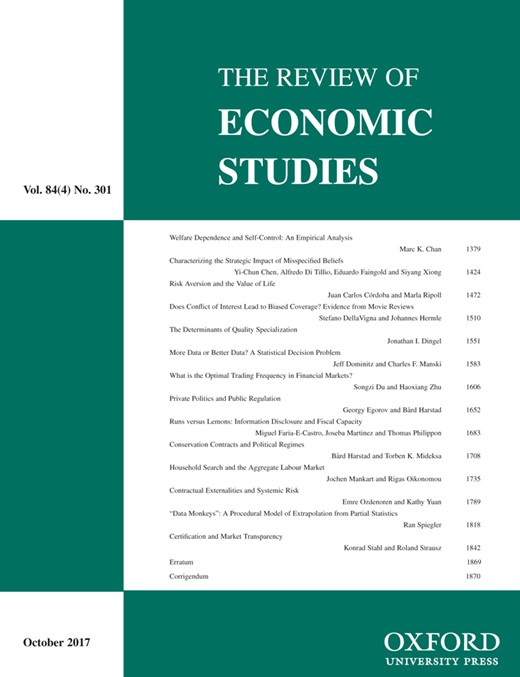-
Views
-
Cite
Cite
Marc K. Chan, Welfare Dependence and Self-Control: An Empirical Analysis, The Review of Economic Studies, Volume 84, Issue 4, October 2017, Pages 1379–1423, https://doi.org/10.1093/restud/rdx011
Close - Share Icon Share
Abstract
A hyperbolic discounting model of labour supply and welfare participation with heterogeneous time preference parameters is estimated. Exclusion restrictions are constructed from variations in behaviour induced by time limits in a welfare reform experiment. We find that most individuals are time-inconsistent, and they exhibit varying degrees of present bias and perception of the commitment problem. Introducing a welfare component to the tax system can make individuals worse off by aggravating the commitment problem. Certain dynamic policy interventions carry sizeable commitment-related work incentives; for instance, a dynamic sanction triggered by past employment can be preferred by some individuals as a commitment device.



